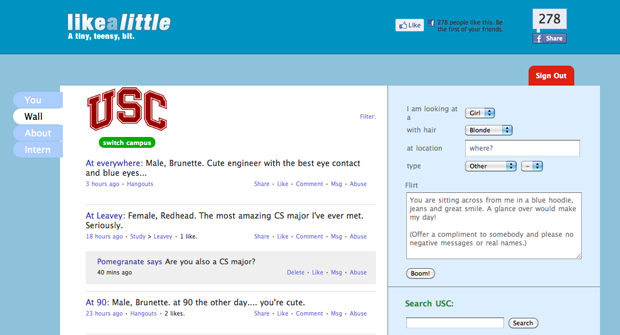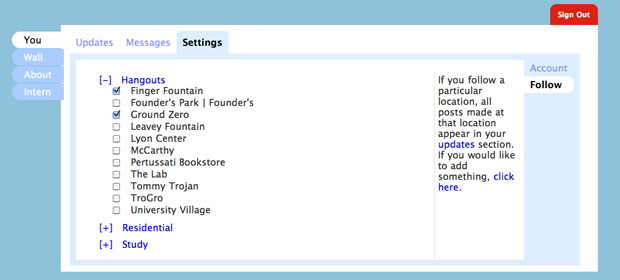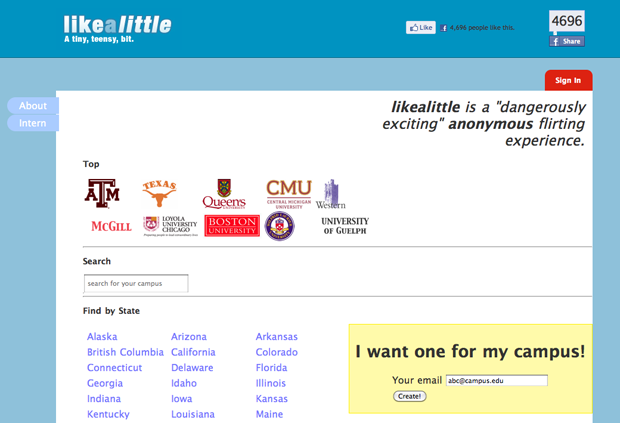
If you were paying attention to Hacker News this weekend, you may have seen both the following post advertising “YC W11 Startup Social Network, 20M Pageviews in 6 Wks, Hiring Hackers/Designers” and the subsequent thread trying to determine which startup it was both go popular within hours of each other.
Since the job post, amateur and not so amateur Internet sleuths (myself included) have put together the various pieces of the puzzle and figured out that the startup in question is Likealittle, a YC-backed “flirting-facilitator platform” launched by former Googlers and Microsofties Evan Reas, Prasanna Sankaranarayanan and Shubham Mittal on October 27th. I’ve also verified this with a source close to the matter.
The original Hacker News thread grabbed our attention with following impressive growth statistic “In just 6 weeks since launch, we have over 20M pageviews (now over 1M a day and growing fast) and hundreds of thousands of daily uniques. Our virality index is higher than Facebook’s in their fastest growth stage.” While Likealittle’s “virality index” claim might be a little hard to prove, hundreds of thousands of daily uniques is formidable, adding up to likely over one million monthly uniques in my estimate.

A Craigslist “Missed Connections” for the college set, Likealittle works by letting you post flirty descriptions and comments anonymously or login to start an account. I’m thinking the anonymous element is why the pageviews are so high and why the HN post didn’t focus on unique users. What keeps people keep coming back to Likealittle is the compulsion to check the discussion around their updates and comments as well as check whether or not someone has mentioned somebody that looks like them.
The advantages to having a Likealittle account over being anonymous include being able to follow a certain location, like a dorm, library or a class that you’re in and keep track of what you’re following. Users can also send and receive messages and take down any comments or updates they feel are abusive just by confirming their school email address. To keep up the positive environment, all randomly generated usernames are fruit-based like “Apple” or “Pomegranate.”
When I emailed the relentlesshackers@gmail.com email address associated with the original HN post it wasn’t very helpful, responding “Trying to be stealthy for the moment.” But founders Reas, Sankaranarayanan and Mittal have given multiple in-depth interviews to a campus publications and it seems like avoiding the tech press is just another part of the viral campus infiltration strategy.
Reas recently told The Stanford Review that he hopes Likealittle “Can be a huge business, can change the world, and affect a lot of people at the same time.” Hmm … Kind of reminds me of another social network that blew up on campus.
